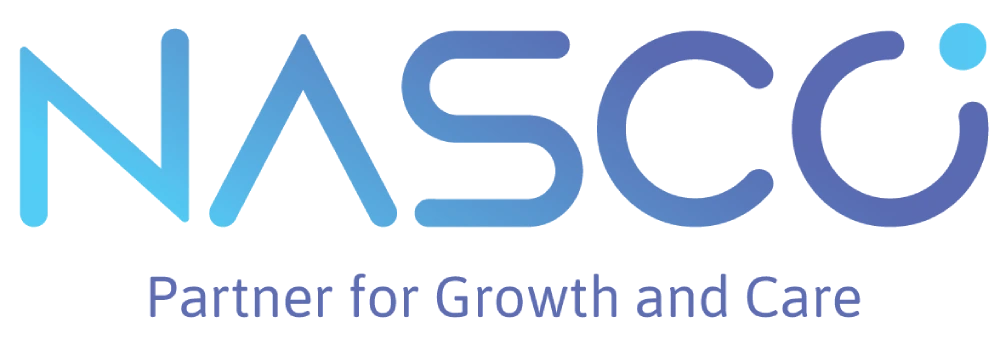Software Solutions for Small Orthopedic Implant Businesses
As a small orthopedic implant business, there are several free software solutions that can help you streamline your operations and manage various aspects of your business. There are several free software solutions that includes:-
OpenClinic GA:
OpenClinic GA is an open-source hospital management software that can be customized to fit the specific needs of orthopedic implant businesses. It offers a range of features to streamline operations and improve patient care. With OpenClinic GA, you can efficiently manage patient records, track inventory levels for implants, schedule appointments, and handle billing processes. The software allows for easy access to patient information, ensuring accurate diagnosis and treatment. It also helps in maintaining optimal inventory levels, minimizing stockouts, and facilitating efficient billing and payment processes.
Odoo:
Odoo is a comprehensive open-source ERP software that covers various aspects of business management. It provides modules for sales, inventory, accounting, project management, and more. As an orthopedic implant business, you can customize Odoo to suit your specific requirements. For example, you can track your inventory of implants, manage sales orders, handle procurement processes, and streamline accounting tasks. Odoo offers a user-friendly interface, integration capabilities, and scalability, making it a powerful tool for managing different aspects of your business.
SuiteCRM:
SuiteCRM is an open-source CRM software designed to help businesses effectively manage their customer relationships. It provides features such as contact management, opportunity tracking, email integration, and reporting. SuiteCRM enables you to streamline your interactions with customers, track leads, manage sales pipelines, and generate insightful reports to analyze your business performance. By using SuiteCRM, you can improve customer satisfaction, increase sales efficiency, and enhance overall customer relationship management.

OpenEMR:
OpenEMR, primarily developed for medical practices, can be adapted for use in orthopedic implant businesses as well. It offers electronic health record (EHR) capabilities, appointment scheduling, medical billing, and inventory management functionalities. OpenEMR allows you to maintain patient records securely, schedule appointments, handle billing processes, and efficiently manage your implant inventory. The software ensures accurate patient information, streamlines administrative tasks, and facilitates effective inventory control.
ERPNext:
ERPNext is an open-source ERP software that provides a comprehensive suite of tools to manage various business functions. It offers modules for sales, inventory, accounting, project management, HR, and more. As an orthopedic implant business, you can utilize ERPNext to track sales orders, manage inventory levels, handle accounting tasks, streamline project management, and manage HR processes effectively. ERPNext integrates different aspects of your business into a single platform, allowing for centralized control, improved collaboration, and better decision-making.
WordPress with WooCommerce:
If your orthopedic implant business has an e-commerce component, using WordPress as your website platform and integrating it with WooCommerce can be a viable option. WordPress is a popular content management system that offers flexibility and ease of use. WooCommerce is a free plugin that adds e-commerce functionality to your WordPress website, enabling you to sell your orthopedic implants online. With WooCommerce, you can create product listings, manage inventory, provide secure payment options, and handle order management. This integration allows you to expand your business reach, offer convenient online purchasing options, and enhance customer experience
Broadly, software solutions are valuable for small orthopedic implant businesses due to several reasons.
Streamlining Operations:
Software solutions automate and streamline various business processes, saving time and reducing errors. For instance, OpenClinic GA, an open-source hospital management software, can be customized to fit the needs of orthopedic implant businesses. It provides features such as patient management, inventory management, appointment scheduling, and billing. With OpenClinic GA, you can efficiently manage patient records, track implant inventory levels, schedule appointments, and handle billing processes. This automation improves operational efficiency and allows staff to focus on critical tasks.
Improved Data Management:
Software solutions offer a centralized and secure platform for managing data related to patients, inventory, sales, and other aspects of the business. This centralization facilitates easy access, efficient record-keeping, and accurate reporting, which are crucial for decision-making and regulatory compliance. Odoo, an open-source ERP software, provides modules for sales, inventory, accounting, and project management. It allows customization to suit the specific requirements of orthopedic implant businesses. With Odoo, you can track implant inventory, manage sales orders, handle procurement processes, and streamline accounting tasks. This improves data management and ensures accurate and reliable information.
Enhanced Customer Relationship Management (CRM):
CRM software enables businesses to manage their interactions with customers effectively. SuiteCRM, an open-source CRM software, offers features such as contact management, opportunity tracking, email integration, and reporting. By using SuiteCRM, orthopedic implant businesses can streamline customer interactions, track leads, manage sales pipelines, and generate insightful reports for analyzing business performance. This improves customer relationship management, strengthens customer relationships, and enhances customer satisfaction.
Inventory Management:
Orthopedic implant businesses deal with a range of products, and efficient inventory management is crucial. Software solutions provide real-time visibility into inventory levels, track product usage and expiration dates, and generate alerts for reordering. OpenEMR, primarily developed for medical practices, can be adapted for orthopedic implant businesses. It offers electronic health record (EHR) capabilities, appointment scheduling, medical billing, and inventory management functionalities. OpenEMR allows businesses to maintain patient records securely, schedule appointments, handle billing processes, and efficiently manage implant inventory. This ensures optimal inventory levels, minimizes stockouts, reduces wastage, and improves overall inventory management.
Financial Management:
Software solutions, such as ERP systems, offer accounting and financial management modules that facilitate invoicing, expense tracking, budgeting, and financial reporting. ERPNext, an open-source ERP software, provides comprehensive tools for sales, inventory, accounting, project management, and HR. Orthopedic implant businesses can utilize ERPNext to track sales orders, manage inventory levels, handle accounting tasks, streamline project management, and manage HR processes. This assists in maintaining accurate financial records, monitoring profitability, and complying with financial regulations.
E-commerce Capabilities:
For businesses with an online sales component, e-commerce software enables the creation and management of online stores. WordPress, a popular content management system, can be integrated with WooCommerce, a free e-commerce plugin, to facilitate online sales. WordPress with WooCommerce provides features such as product listings, shopping cart functionality, secure payment options, and order management. This expands the business reach, allows customers to conveniently purchase orthopedic implants online, and enhances overall sales potential.
In summary, implementing these software solutions tailored to the specific needs of your orthopedic implant business offers numerous benefits. It streamlines operations, enhances data management, improves customer relationships, optimizes inventory control, and enables efficient financial management. However, it’s important to consider factors such as data security, scalability, and ongoing support when choosing and implementing software solutions.

